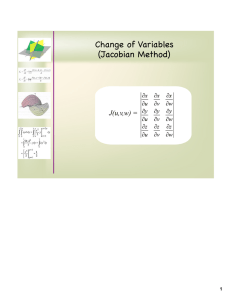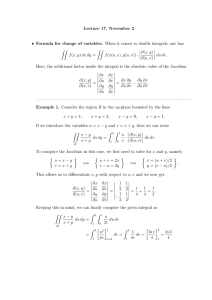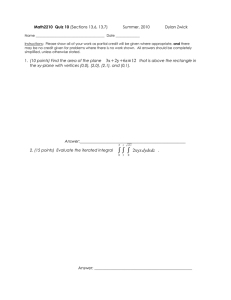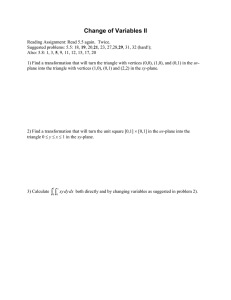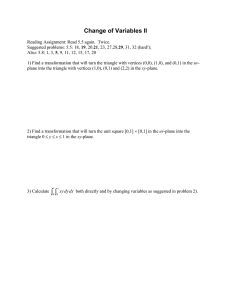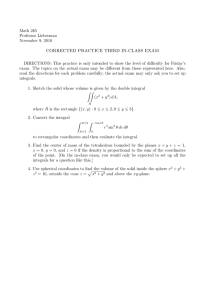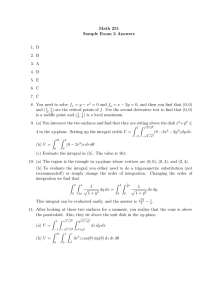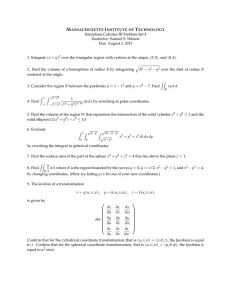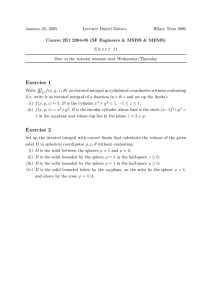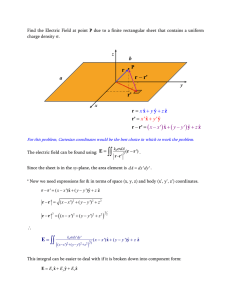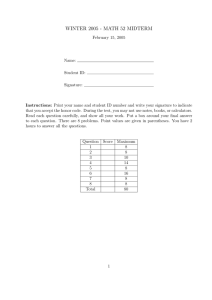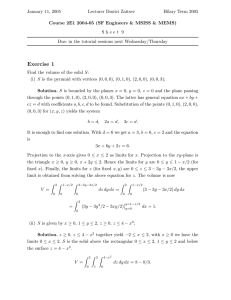Change of Variables (Jacobian Method) J(u,v,w) = 1
advertisement
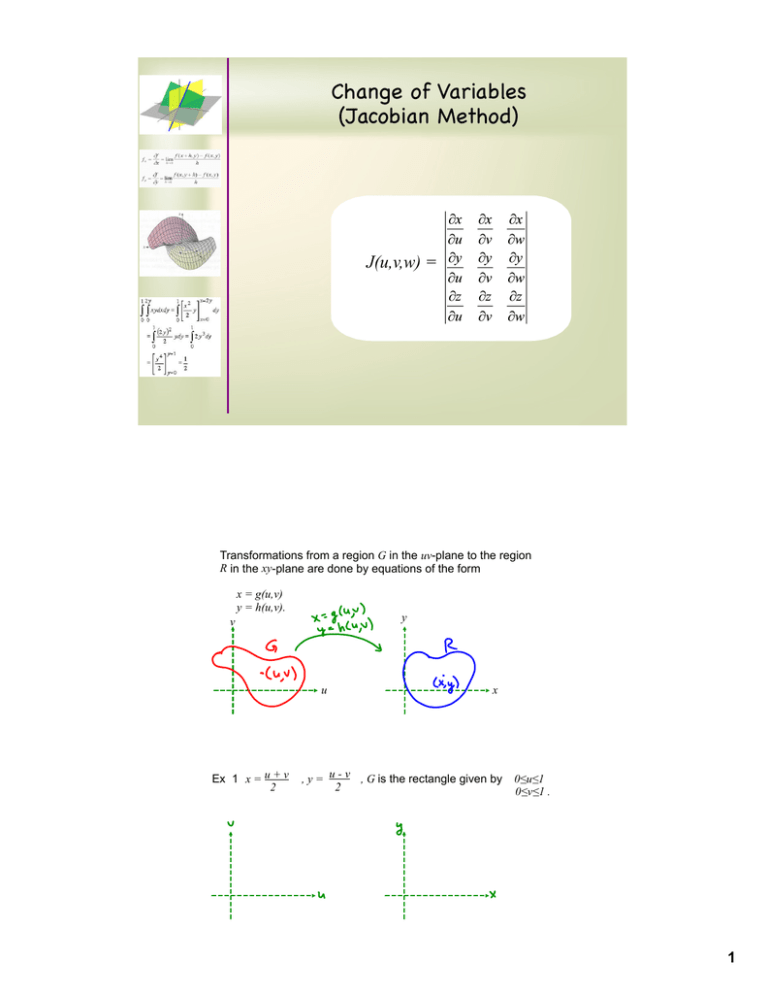
Change of Variables (Jacobian Method) J(u,v,w) = Transformations from a region G in the uv-plane to the region R in the xy-plane are done by equations of the form x = g(u,v) y = h(u,v). y v u Ex 1 x = u + v 2 x , y = u - v , G is the rectangle given by 2 0≤u≤1 0≤v≤1 . 1 How is the integral of f(x,y) over R related to the integral of f(g(u,v), h(u,v)) over G? where . EX 2 For polar coordinates, x = r cos θ , y = r sin θ , what is J(r,θ )? EX 3 Evaluate where R is the triangle in the xy-plane with vertices at (0,0), (π, -π) and (π,π). Use the change of variables to u = x - y and v = x + y. 2 EX 4 Evaluate 5(x2 + y2)dx dy where R is the region in Q1 bounded by x2 + y2 = 9, x2 + y2 = 16, y2 - x2 = 1, y2 - x2 = 9. Hint: Use u = x2 + y2 and v = y2 - x2 to transform R into a much nicer region (G). y x Change of variables in 3 dimensions. x = g(u,v,w) If y = h(u,v,w) z = j(u,v,w) then ∫ ∫ where J(u,v,w) = EX 5 Let's check the Jacobian for spherical coordinates. 3
